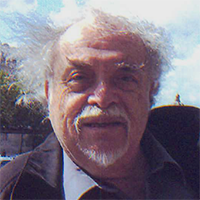 Letter to Her Father
Letter to Her Father
by a Ming lady
Of course, I don't remember being bound.
I'm sure I cried, as every infant must,
The nurse-girl tightening the first fold of cloth
To squeeze and, then, to crush the pliant bone.
At that age, a mere swab of flesh-and-blood,
One doesn't understand, though one can feel.
My mother on her whitened stumps could feel
What it was like, life and limb so bound,
But life for her was more than flesh, than blood.
Whatever love she felt, she knew she must
Sacrifice for me. She had the backbone
Needed. You cried like a wrung-out dishcloth.
Forgive me, father, if I miss the cloth,
The shaping pain, who, shapeless, cannot feel
A woman on this all-too-virile bone
Which walks too fast, and straight, not being bound
By what is right for a woman, who must
Rise above the clamor of the blood
To be wed and bear children of good blood,
Not wear shame about me like a fouled cloth.
You did what you did in love, but I must
Pay the price. You cannot know what I feel.
Shen wrote: Like a slave-girl, she goes unbound
Over the grass, which has no feet of bone.
The grass is free because no brittle bone
Shackles its slender being. Its green blood
By nature itself is properly bound.
You should have let the girl tighten the cloth.
We are not grass, and I am doomed to feel
Their pitying scorn, yet each day still must
Attend the court where all the ladies must
Kowtow to me. It is bred in the bone,
Of course. None smiles, and whatever they feel
Never rises above the buoyant blood.
One snaps her fan, or adjusts her sash-cloth
As though for a moment it had come unbound.
I was taught women must restrain the blood,
Fashion an inner cloth to bind the bone.
They say we are bound to be, not to feel.








